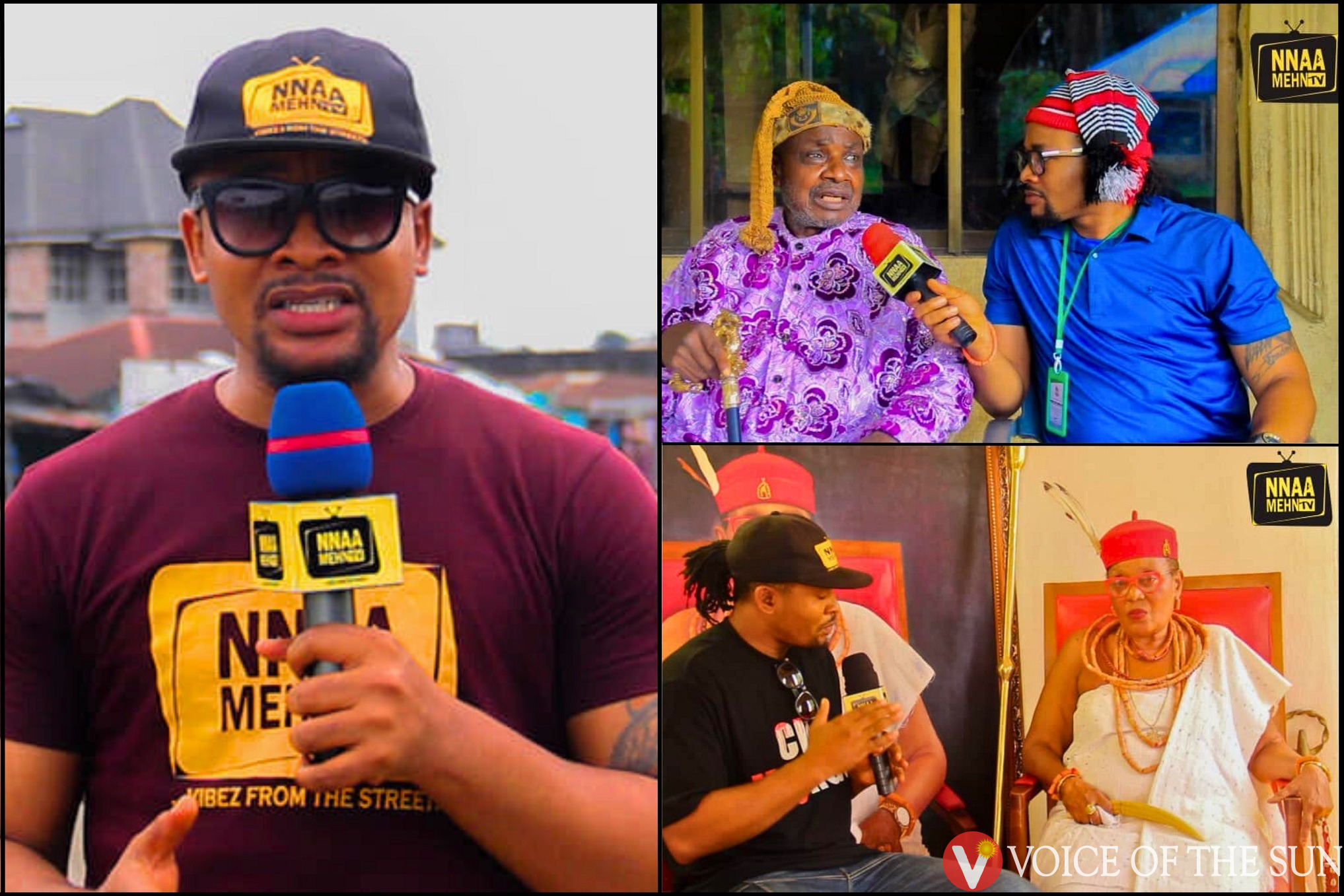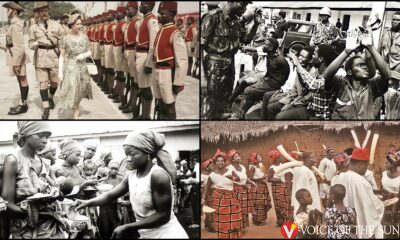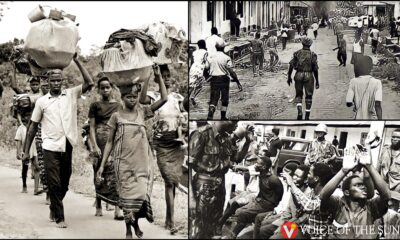Igbo History and Origins
Britain’s Role In The Biafran Genocide, That Left Over 3 Million Dead – They Wanted Our Oil, So We Were Condemned To Death
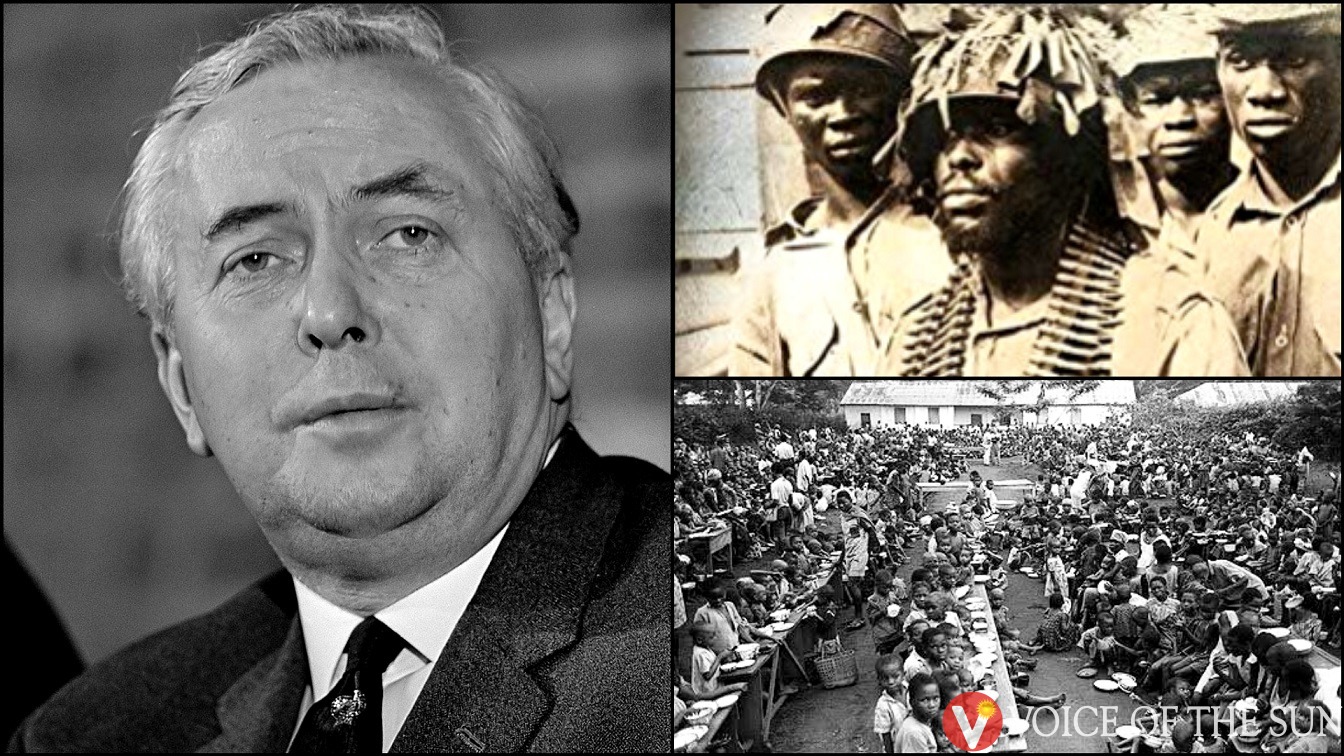
In a post titled ‘Buried for 50 years: Britain’s shameful role in the Biafran war’, published in The Guardian, writer Frederick Forsyth recounts his time in Biafra in which he passionately states, “A million children starved to death. I’m haunted by the images I saw there – and by the complicity of the Wilson government.”
Today, many may not be aware or may have forgotten that a little more than 50 years ago, in January 1970, the last shot of the Nigerian-Biafran War (sometimes dubbed, albeit erroneously, the Nigerian Civil War) was fired, and Biafra―a short-lived secessionist state―surrendered to Nigeria. Prior to the last shot of 1970, Biafrans and Nigerians engaged in a long and bitter war that began in July of 1967; a war that ultimately claimed the lives of some 3 million people, most of them civilians, and of Igbo extraction.
Many to this day are left wondering why this infamous war took place, and why the Biafrans had to suffer so much. Others are found pointing and accusing fingers at different areas in trying to justify their involvement in the war. However, while a lot of parties in that war played their part in helping the war effort on the side of their allies, one nation stood out above the rest in its involvement in a process that would ultimately lead to the genocide against Biafrans; that nation was Britain.
Many have often questioned the extent of British involvement in the Nigerian-Biafran War, and not until recently―with the presence of newly available evidence, mainly from the Public Records Office (now the National Archive) in London―had come to no concrete conclusions. Evidently, the government of Britain, together with its apologists, had in the past tried to hide those records from the general public in its bid to justify its support for the Federal Military Government (FMG) of Nigeria, and to make what was clearly a crime against humanity seem all like a necessary action.
Historically, Britain became involved with Nigeria at the onset of the war. It should be noted that after her independence, Britain’s economic interest in Nigeria remained strong, especially with the discovery of crude oil mainly in the area that became Biafra. As records show, Britain had planned to maintain and expand their supply of cheap high-quality oil from Nigeria and therefore placed a high priority on the maintenance of oil extraction and refining operations in the country.
At the outbreak of war then―in a period which coincided with the Six-Day War in the middle-east between Israel and Arab forces, and led to the closure of the Suez Canal which, subsequently, meant that oil tankers from the Middle East had to use the long route around the Cape of Good Hope, thereby increasing the cost of Middle Eastern oil ―Britain had to place its lot with either side of the parties. Despite Wilson’s government initially adopting a neutral position, it soon became clear that Britain, after various considerations, was going to strongly back the FMG.
In his letter to the Secretary of State for Commonwealth Affairs, David Hunt, then British High Commissioner in Lagos, on July 27, 1967, wrote thus:
“Ojukwu, even victorious, will not be in a strong position. He will require all the international help and recognition he can get. The Federal Government would be much better placed both internationally and internally. They would have a cast iron case for the severest treatment of a company which has subsidized a rebel, and I feel fairly convinced they would press their case to the lengths of canceling the Company’s concessions and nationalizing their installations. I conclude, therefore, if the company does change its mind and asks the British Government for advice, the best that could be given is for it to clamber hastily back on the Lagos side of the fence with chequebook at the ready.” (Uche, 2008)
Also, Commonwealth Minister George Thomas, in August 1967, wrote that “the sole immediate British interest in Nigeria is that the Nigerian economy should be brought back to a condition in which our substantial trade and investment in the country can be further developed, and particularly so we can regain access to important oil installations”.
Hence, as Chibuike Uche summarizes in his ‘Oil, British Interests and The Nigerian Civil War’, “while the official position of the British government was that its main interest in the Nigeria conflict was to prevent the break-up of the country along tribal lines, the true position was more complex. Britain’s interests in oil had played a much more important role in determining British attitude to the war than is usually conceded, and supporting a ‘One Nigeria’ solution was considered its safest bet in order to achieve her objectives.”
Into the war, Britain covertly supplied Nigeria with weapons and ammunition, as well as provided her with military training and intelligence, and also helped her to purchase sophisticated arms and to hire mercenaries. It also provided Nigeria with vessels and vehicles, and logistics. After her decision to back Nigeria, the British Broadcasting Commission adjusted its reporting to favor the Federal side.
As weapons supplied to Nigeria in the initial stages of the war were not enough to see Biafra suppressed, and with Gowon’s complaints about Britain not supplying more arms, Prime Minister Wilson agreed in mid-July to supply the FMG with more arms, including fast patrol boats. This was done in the full knowledge that they would help the FMG maintain the blockade imposed on Biafra. Wilson at the time had written to Gowon assuring that “we have demonstrated in many ways our support for your government as the legal government of Nigeria and our refusal to recognize the secessionists”.
Subsequently, Britain continued to supply Nigeria with the necessary materials it needed to wage its war. As reported, Britain in 1967, supplied Nigeria with 30 Saracen APCs along with 2,000 machine guns, anti-tank guns, and 9 million rounds of ammunition. It also provided her with 1,050 bayonets, 700 grenades, 1,950 rifles with grenade launchers, 15,000 lbs of explosives, and two helicopters. In the first half of 1968, Britain approved the export of 15 million rounds of ammunition, 21,000 mortar bombs, 42,500 Howtizer rounds, 12 Oerlikon guns, 3 Bofors guns, 500 submachine guns, 12 Saladins with guns and spare parts, 30 Saracens and spare parts, 800 bayonets, 4,000 rifles, and two other helicopters.
Britain also provided Nigeria with the media support, and protection it needed―through the BBC―to refute claims of the ongoing genocide in Biafra despite images of starving children, sick with kwashiorkor, saturating the world media. As reported, British war correspondents/reporters sent to the area―among them Frederick Forsyth―had been briefed to report the all-conquering march of the Nigerian army. As the Nigerian military, however, could not easily score total victories in battles and were soundly matched and beaten in some by the ill-equipped Biafrans, some of them began to report the truth which was broadcasted. This act was frowned upon by Hunt who complained to the CRO in London, who in turn passed it on to the BBC, which, particularly, accused Forsyth of ‘pro-rebel bias’ and recalled him to London. John Hunt, leader of the Everest expedition, as well as others were also smeared as stooges of Biafra.
In her war with Biafra, the Nigerian military was culpable of atrocities against Ndi Igbo, and against ethnic minorities in and outside of Biafra. With regard to the Igbo, millions died during the war; a vast majority of them from the famine imposed deliberately through the blockade which lasted throughout the war.
The blockade of Biafra led to a humanitarian disaster when it emerged that there was widespread civilian hunger and starvation in the besieged Igbo areas. As of September 1968, it was estimated that about 8,000 to 10,000 people―mostly children―died daily from starvation. The policy of the Nigerian government was crystal clear, and as revealed, was to use starvation as a legitimate weapon of war against Biafra.
The Nigerian military also committed further atrocities including the deliberate bombing of civilian-occupied areas―including hospitals belonging to the red cross, systematic mass slaughter with machine guns, and rape. Genocide was also recorded against ethnic minorities in Biafra. Among other killings, some 2000 Efiks were killed in Calabar by Federal troops, while ethnic minorities sympathetic to the Biafran cause were also massacred in their thousands.
On ethnic minorities outside Biafra, the Nigerian army under Muritala Mohammed had targeted the ethnic Igbo in Asaba, and upon orders from the top military echelon, executed about a thousand of them―mostly males, and raped the women. Also, around 1000 were killed in Benin City, while another 5000 had been killed in various towns of the mid-west.
It should be noted that Biafra made a formal complaint of genocide against Ndi Igbo to the International Committee on the Investigation of Crimes of Genocide. This committee had concluded that British colonial administrators were complicit in the process of fomenting ethnic hatred and violence in Nigeria. With special reference to the Asaba Massacre, Emma Okocha refers to the killings as “the first black-on-black genocide”, while Ekwe-Ekwe significantly blames the British.
To him, “Britain was a central operative, along with the Nigerian state, in the planning and execution of the Igbo genocide right from its outset in 1966 to its concluding phases in 1969/1970”.
Also, “without the massive arms support that Nigeria received from Britain especially, it was highly improbable Nigeria would have been in the military position to pursue its second phase (the first being the anti-Igbo pogrom between May and October 1966) of the genocide―namely, the invasion of Igboland―between July 1967 and January 1970. Harold Wilson, the British prime minister at the time, was adamant, as the slaughtering worsened, that he ‘would accept’ the death of half a million’ Igbo ‘if that was what it took’ the Nigerian genocidists on the ground to accomplish their ghastly mission”.
To counter claims of genocide in Biafra, Britain pressured Nigeria into allowing an International Observer Team into the country to show that it was not pursuing a campaign of genocide in Biafra. This, the Federal Military Government announced it would allow in late August 1968.
Clearly, Britain had pushed for the creation of the observer team when it came under pressure as a result of the claims that a genocide was being committed against Biafrans, and had the team’s work (the IOT had repeatedly reported that no genocide was taking place in the country) incorporated into the government’s justifications for its support of the Nigerian government. “The experience of the observer team,” notes Karen Smith in her ‘The UK and ‘genocide’ in Biafra’, “illustrates the difficulties of providing an ‘objective’ view regarding whether or not genocide is taking place”. Their work, then and now was/is also the ground on which many stood/stand to refute claims of genocide in Biafra.
Yet, the fact is that Britain with no regard for the lives of the millions in Biafra had connived with Nigeria to deny the young country the chance to exist independently as was its right. Again, it had helped to hasten this denial by providing Nigeria with the all-around support it required in its blockade of Biafra which razed hell on a nation whose only crime was a clamor for self-determination. As such, the British government had helped to see to the gruesome killing of millions―a greater of them children and women―through the use of starvation as a weapon of war, the unwarranted/unchecked bombardment of civilians by co-conspiring Egyptian pilots, and later East German pilots, and the systematic gunning down of civilians by the Nigerian army.
Borrowing Forsyth’s closing remarks, what is truly shameful is that this was not done by savages but aided and assisted at every stage by Oxbridge-educated British mandarins. Why? Did they love the corruption-riven, dictator-prone Nigeria? No. From start to finish, it was to cover up that the UK’s assessment of the Nigerian situation was an enormous judgmental screw-up. And, worse: with neutrality and diplomacy from London it could all have been avoided.
The Biafran resistance ended on January 21, 1970, when Biafra surrendered to the FGM.
This Article Was Written By Chuka Nduneseokwu, Editor-In-Chief, of Voice Of The Sun
Please Support and DONATE To Us. Help Us In Preserving Our History, Culture and Beliefs as Ndi Igbo. CLICK HERE to assist us financially.
Sources:
Curtis, M (n.d.). The British role in the Nigerian Civil War. Retrieved June 22, 2020 from Naijiant: https://www.naijiant.com/guestcolumn/the-british-role-in-the-nigerian-civil-war/
Ekwe-Ekwe, H. (2013). The Achebean Restoration. Journal of Asian and African Studies, 48; 6.
Forsyth, F. (2020, Jan 21). Buried for 50 years: Britain’s shameful role in the Biafran war. Retrieved June 22, 2020 from The Guardian: https://amp.theguardian.com/commentisfree/2020/jan/21/buried-50-years-britain-shamesful-role-biafran-war-frederick-forsyth
Smith, Karen E. (2014). The UK and ‘genocide’ in Biafra. Journal of Genocide Research, 16 (2-3); 247-262.
Uche, C. (2008). Oil, British Interests and the Nigerian Civil War. Journal of African History 49(1); 111-135
-
![How Igbo People Started Becoming Christians 181 Years Ago (1841–2022): A Brief History Of Christianity In Ìgbòland [Part I] How Igbo People Started Becoming Christians 181 Years Ago (1841–2022): A Brief History Of Christianity In Ìgbòland/Among The Ìgbò [Part I]](https://voiceofthesun.com/wp-content/uploads/2022/07/How-Igbo-People-Started-Becoming-Christians-181-Years-Ago-1841–2022-A-Brief-History-Of-Christianity-In-Igboland-Among-The-Igbo-Part-I-1-400x240.jpg)
![How Igbo People Started Becoming Christians 181 Years Ago (1841–2022): A Brief History Of Christianity In Ìgbòland [Part I] How Igbo People Started Becoming Christians 181 Years Ago (1841–2022): A Brief History Of Christianity In Ìgbòland/Among The Ìgbò [Part I]](https://voiceofthesun.com/wp-content/uploads/2022/07/How-Igbo-People-Started-Becoming-Christians-181-Years-Ago-1841–2022-A-Brief-History-Of-Christianity-In-Igboland-Among-The-Igbo-Part-I-1-80x80.jpg) Igbo History and Origins3 years ago
Igbo History and Origins3 years agoHow Igbo People Started Becoming Christians 181 Years Ago (1841–2022): A Brief History Of Christianity In Ìgbòland [Part I]
-
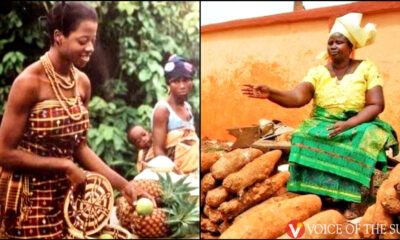
 Igbo Cultures And Traditions3 years ago
Igbo Cultures And Traditions3 years agoThe Four Igbo Market Days and Their Significance In Odinala na Omenala ÌGBÒ
-
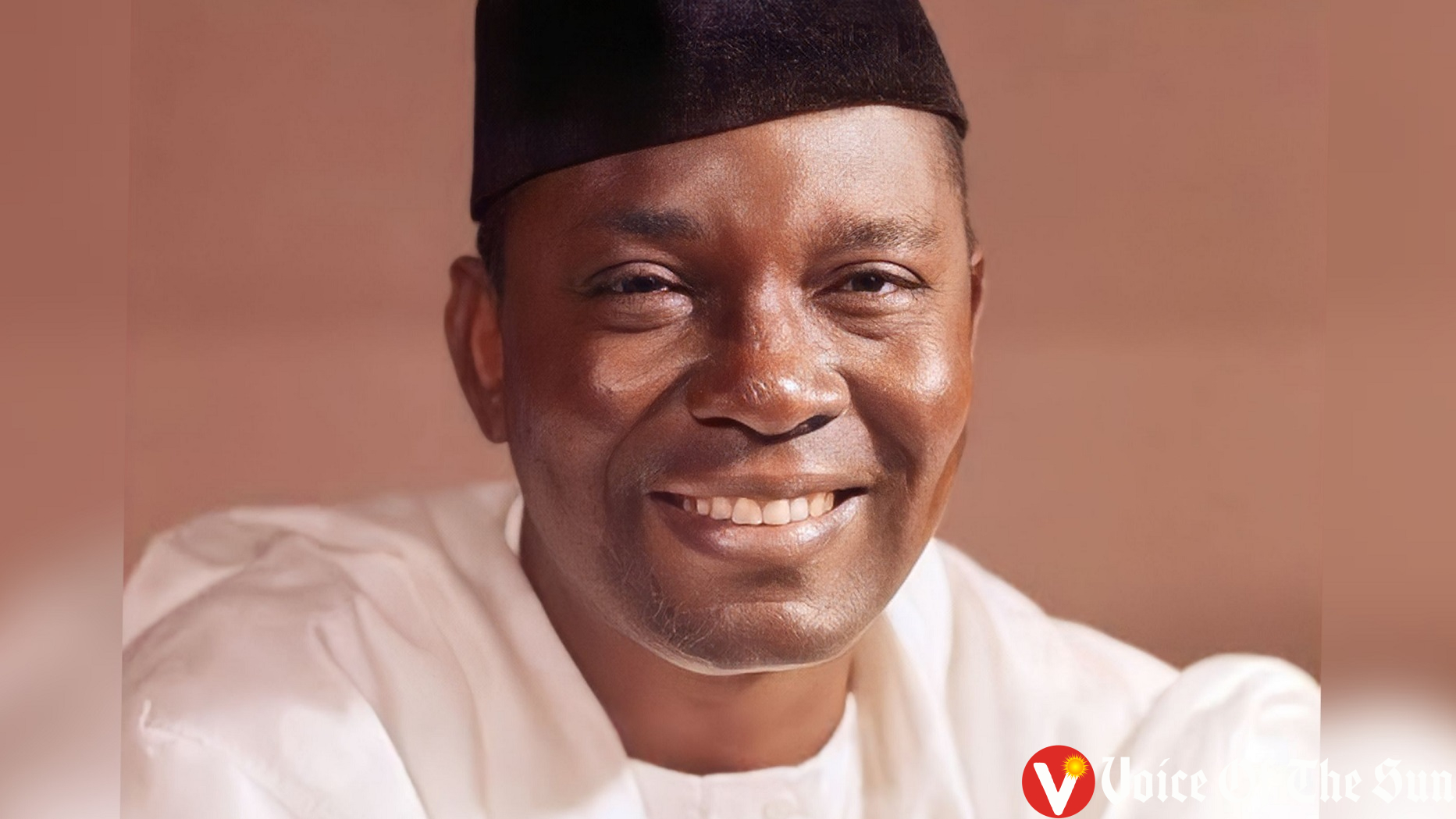
 Igbo History and Origins2 years ago
Igbo History and Origins2 years agoNnamdi Azikiwe: Legacy of a Nigerian Nationalist And Igbo Icon
-
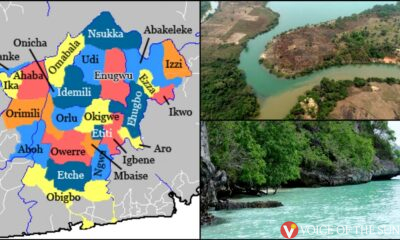
 Igbo News3 years ago
Igbo News3 years agoIgbo Land Is Not Landlocked – We Have The Deepest And Shortest Access To The Atlantic Ocean
-
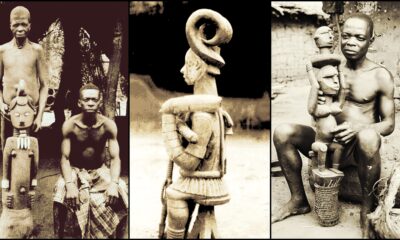
 Igbo Spirituality2 years ago
Igbo Spirituality2 years agoÌgbò Ancestors Did Not Worship Idols and Demons – A Journey Into Ịgọ Mmụọ In Odinana Ìgbò
-
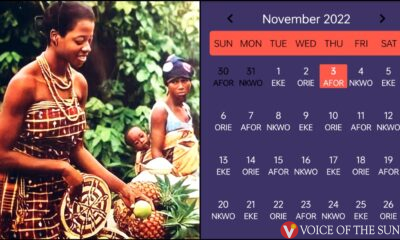
 Igbo Cultures And Traditions2 years ago
Igbo Cultures And Traditions2 years agoWhich Igbo Market Day Is Today – Get The Complete Igbo Calendar
-
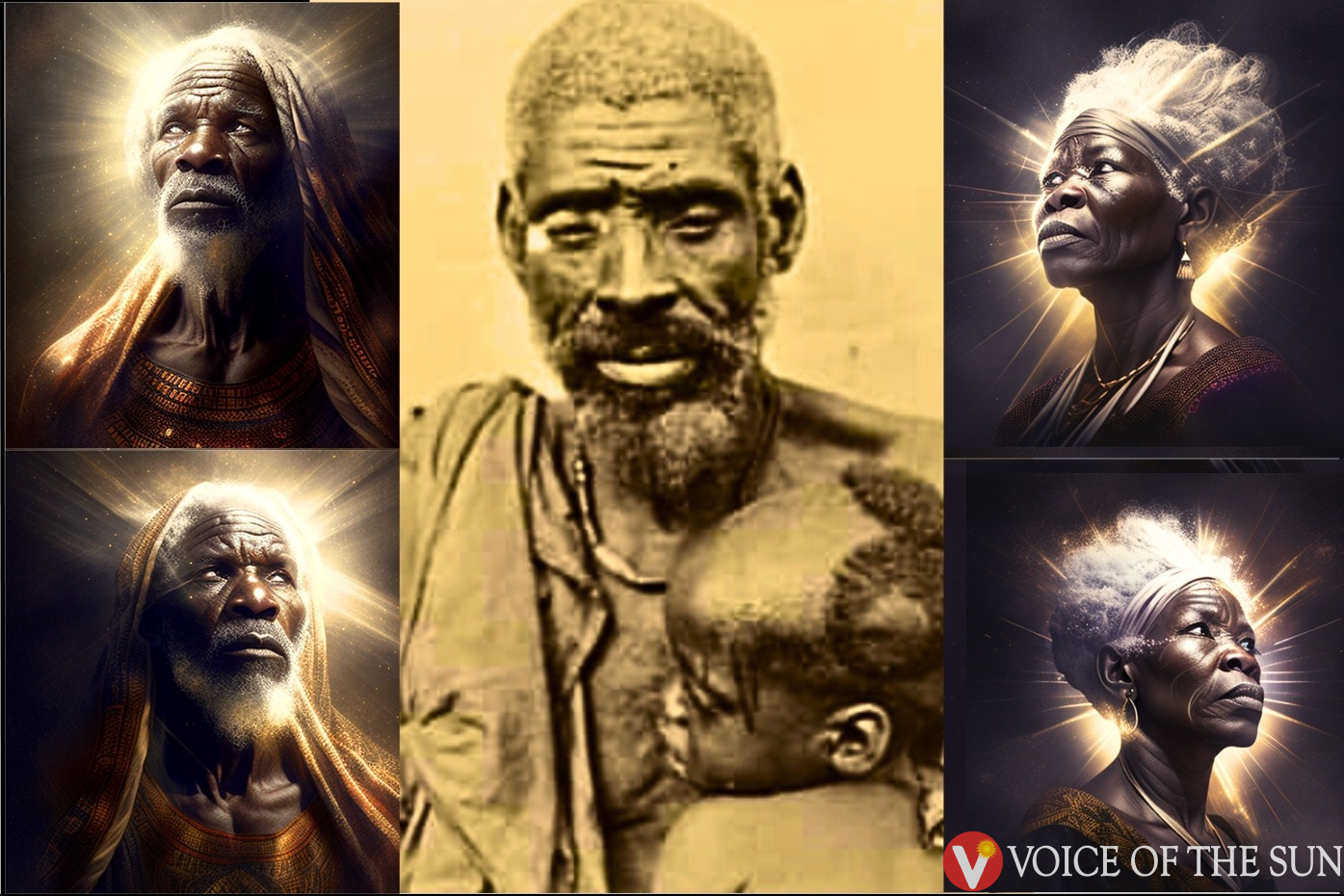
 Igbo Spirituality2 years ago
Igbo Spirituality2 years agoUnderstanding Ndị Ịchie In Igbo Cosmology: Who Are Ndi Ichie In Odinana na Omenana Ìgbò?
-
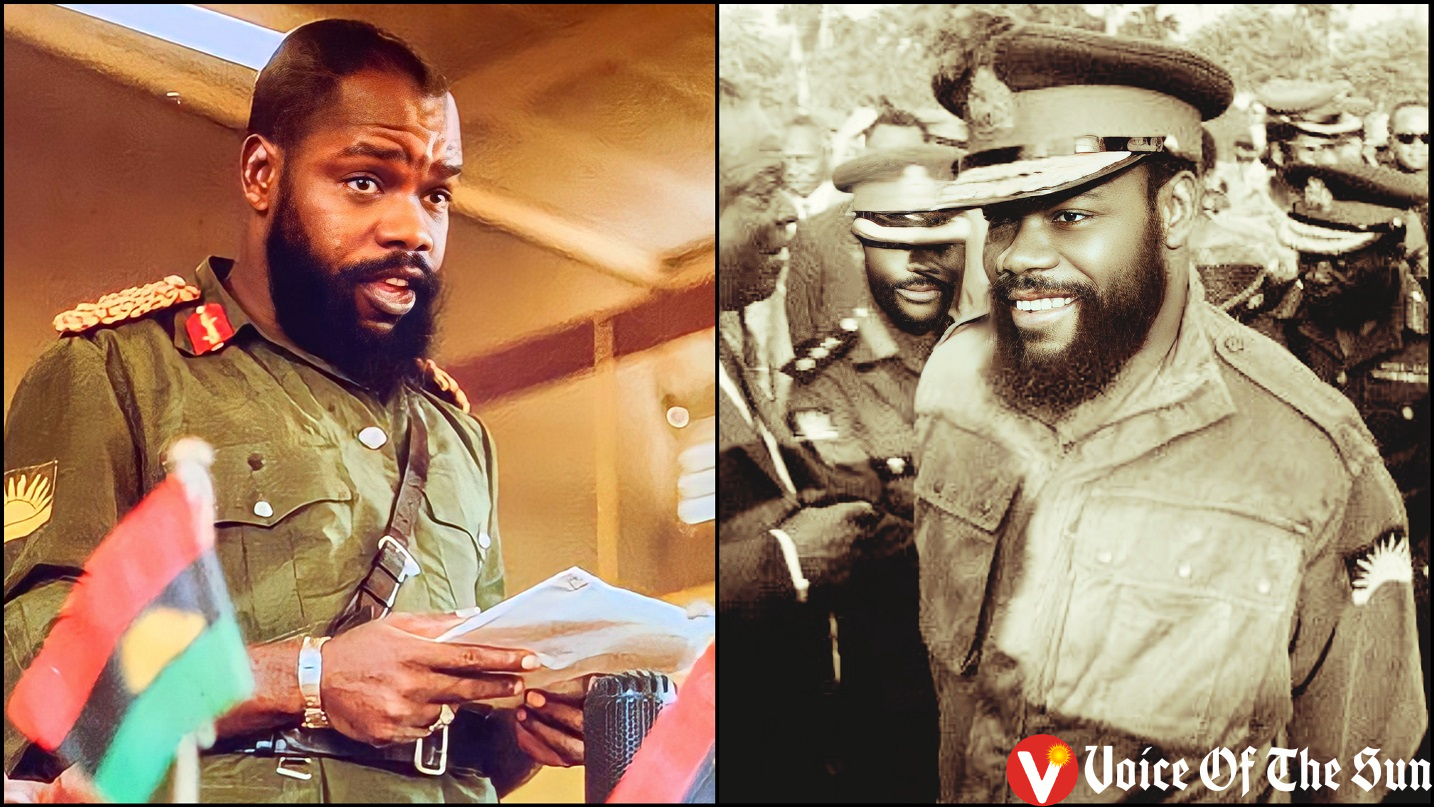
 Igbo History and Origins2 years ago
Igbo History and Origins2 years agoChukwuemeka Odumegwu Ojukwu: The Life And Legacy Of An Igbo Hero

